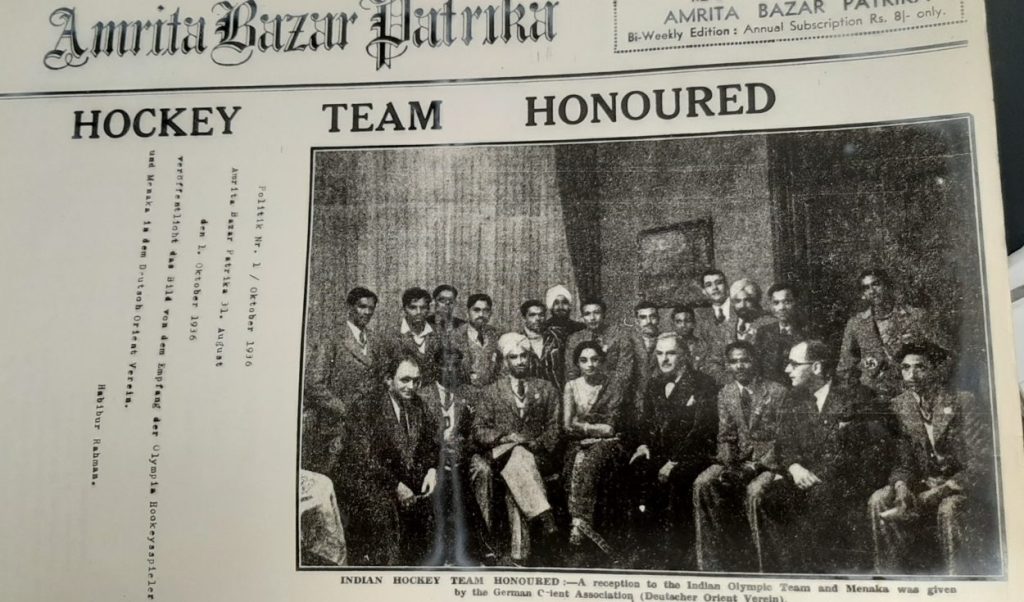
Marc-William Palen
History Department, University of Exeter
Follow on Twitter @MWPalen
From the Walter Rodney murder mystery 40 years later to British collaborators in Africa, here are this week’s top picks in imperial and global history.
The Walter Rodney Murder Mystery in Guyana 40 Years Later
Mary E. Curry
National Security Archives
More than four decades after the murder of Guyanese scholar-political activist Dr. Walter Rodney on June 13, 1980, Guyana’s National Assembly accepted the findings of a major commission of inquiry into the assassination. It concluded that the government of then-Prime Minister Forbes Burnham had organized the murder, which was perpetrated by an active-duty sergeant in the Guyana Defense Force, Gregory Smith. To mark these findings and to reacquaint readers with key documents about Rodney’s final months, the National Security Archive updates its 2020 posting with a new document and information about the National Assembly’s actions.
On August 9, 2021, the Assembly voted to adopt “Resolution No. 23 of 2021 …” to implement the 2016 findings of “The Commission of Inquiry Appointed to Enquire and Report on the Circumstances Surrounding the Death in An Explosion of the Late Dr. Walter Rodney on Thirteenth Day of June, One Thousand, Nine Hundred and Eighty at Georgetown.” [1] The Commission found that Rodney “could only have been killed in what we find to be a State organized assassination with the knowledge of Prime Minister Burnham.” Moreover, the Commission had “no hesitation in holding that Gregory Smith was responsible for Dr. Walter Rodney’s death on 13 June 1980 and that in so doing he was acting as an agent of the State having been aided and abetted so to do.” [continue reading]
Nazis based their elite schools on top British private schools
Mark Brown
Guardian
Nazi Germany’s elite schools, which were set up to train future leaders of the Third Reich, used British private schools such as Eton and Harrow as their models, a new book reveals.
The historian Helen Roche has written the first comprehensive history of Nazi elite schools, known as Napolas. Drawing on research undertaken in 80 archives in six countries as well as testimonies from more than 100 former pupils, Roche discovered just how keen the Nazis were to learn from the “character-forming” example of the British system. Between 1934 and 1939 there was a blizzard of reciprocal exchanges between British and German schools, with boys from Britain’s most prestigious private schools spending extended periods at the Napolas. [continue reading]
Madame Menaka and the Indian hockey team in Berlin
Baijayanti Roy
Menaka Archive
On 11th August 1936, Amrita Bazar Patrika, the Calcutta based English language daily known for its nationalist leanings, displayed a large photograph under the proud heading, printed in capital letters: “Hockey Team Honoured.” The photograph, preserved at the Political Archive of the German Foreign Ministry in Berlin, depicts the Indian hockey team which had won the gold medal at the Olympic Games held in the summer of 1936 in Berlin, at a formal reception in the German capital.
However, the photo features not only the victorious team. Present alongside the players are a few official looking German gentlemen and most notably, an Indian lady wearing an ornate sari. The lady, looking perfectly at ease at the centre of the photo, is Madame Menaka, the dancer from Calcutta who was touring Germany with her troupe at the time. [continue reading]
More Department of State Records Now Available Online: Diplomatic Instructions, 1785-1906 & Consular Instructions, 1801-1834
David Langbart
The Text Message
The National Archives is pleased to announce that more records of the Department of State have been digitized and are now available online through the National Archives Catalog. This is the fourth in a series of occasional posts. It is the final post describing the records that constitute the “central files” of the Department for the period from 1789 to 1906. The first post described the microfilm digitization project and the first foreign affairs records made available through it.
The Department of State central files for the period 1789-1906 are divided into three main categories, each of which is arranged in multiple series as listed below. Series in purple are already online; the series in green are discussed herein. Future blog posts will alert researchers as other Department of State records are digitized and made available online. [continue reading]
Collaborators in Africa: Did Britain help murder an African leader and UN Secretary-General?
Richard Norton-Taylor
Daily Maverick
Britain’s foreign intelligence agency, MI6, overthrew Mohammad Mossadegh, Iran’s first democratically elected prime minister, in 1953 with the help of the CIA. They replaced him with the Shah, an autocrat protected by his infamous secret police, Savak. A few years later, MI6 conspired with the CIA to overthrow, even assassinate, Patrice Lumumba, Congo’s first democratically elected prime minister.
“Like Lumumba, Mossadegh had been democratically elected and was a champion of secular unity in his country,” writes academic Dr Susan Williams in her new book White Malice, a devastating, superbly researched account of how the CIA, MI6 and Belgium — Congo’s former colonial power — destroyed the newly independent country’s legitimate government. [continue reading]

You must be logged in to post a comment.